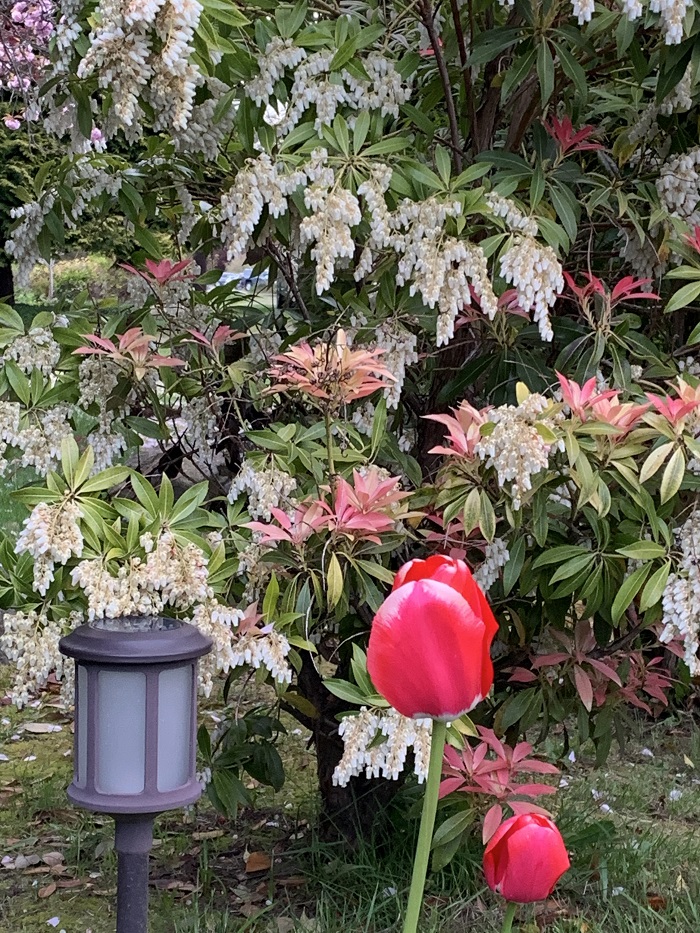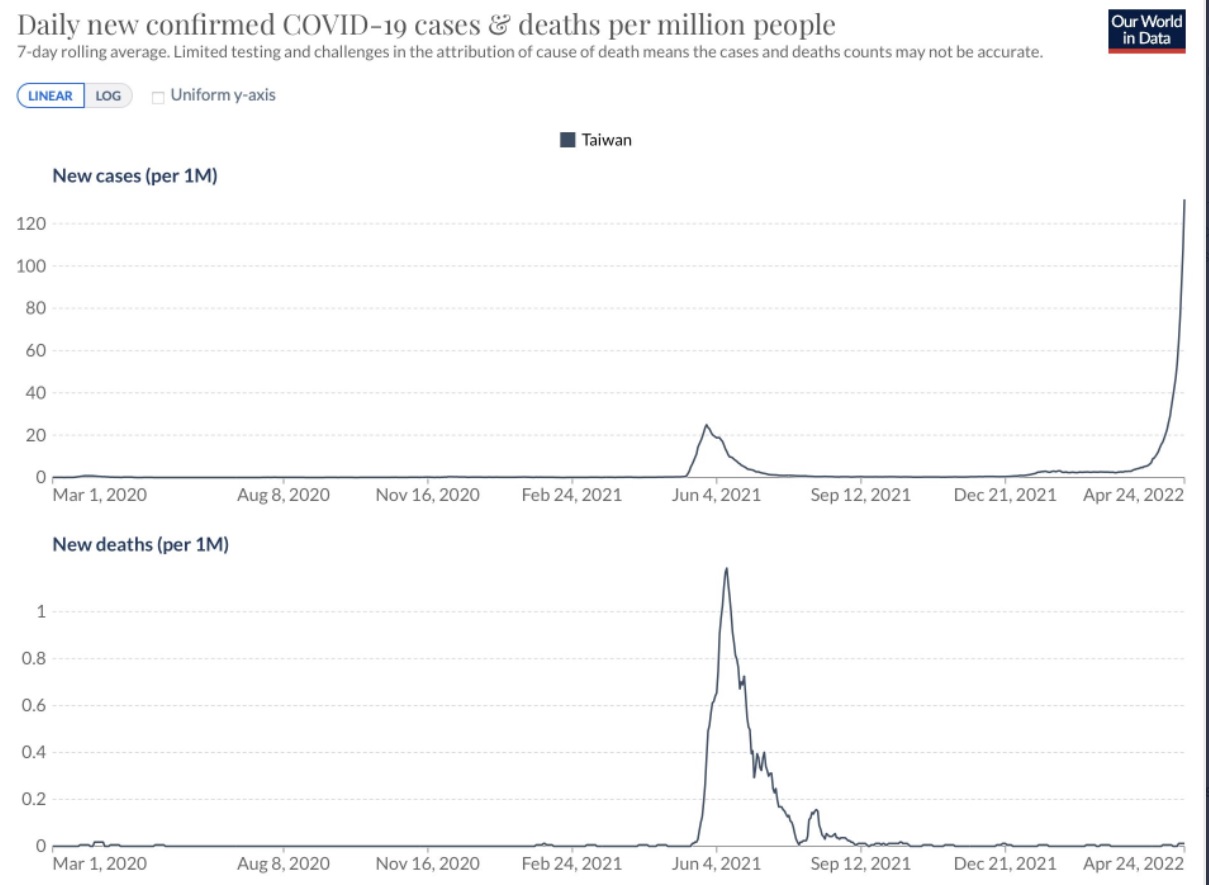We are not overly fond of cold weather but as is often the case in the world what we like and what we get are two different things. The weather has been cold here in Seattle this April and when we look at the forecast warm weather is not arriving anytime soon, a bit like waiting for the bus on a rainy November day. And yet, as in every event, phenomenon and action there are always trade-offs. As we bundle up like the boy in A Christmas Story to go on bike rides or attend baseball games, occasionally grumbling as we do so, the mountains receive more snow which means skiing extends into May. Except we don’t ski. Or snowboard for that matter. But we do snowshoe so maybe we should trudge up the mountains bundled up like we’re headed to a baseball game. Life is as much how you view it as what it actually is. At least in part. For us, we have no reasons for any real complaints (though complain we will) but, of course, for many people the bad weather is real. Ukrainians, for one, and for those in other countries facing deprivation and oppression for another.
But, again, our planet, that so many of us strive to save, has no notion of nor care for any of this. Warm weather will come in its own time, hot weather too, that many will soon complain about. But even in this cold spring, the tulips bloom, the rabbits eat the dwarf mondo grass in our Japanese garden (where’s Elmer Fudd when you need him, or are we ourselves talking with a lisp, hunting coat draped over our shoulders?) and the seasons turn, turn, turn. As you extol or whine about your weather we fertilize the silicon forest, watch bacteria eat plastic and urge China to emulate Taiwan. It’s this week’s International Need to Know, the four seasons of international information and data.
We are attending the nuptials of a niece so we’ll be off next week. Back on Thursday, May 12. Please fix the world while we’re gone (and stop the rabbits).
Without further ado, here’s what you need to know
Missing the Silicon Forest Through the Social Media Trees
We see people atwitter about Elon Musk buying Twitter* with many tweeting (ahem) they will leave the platform if the sale goes through. In general, concerns about social media are overblown with study after study showing that most of the allegations of their harm are either exaggerated or untrue. Ironically, on social media is where we saw so many extolling the recent Jonathan Haidt article, “Why the Past 10 Years of American Life Have been Uniquely Stupid.” Haidt’s piece blaming social media is demonstrably wrong. Social media, like everything in this world, has benefits and challenges, and there are many privacy issues we need to address, but even today the larger worry is government control of technology. Take Nigeria, for example, where this week Reuters reported that the government blocked “73 Million Mobile Phones For Not Registering In National Digital Identity Database.” Yes, the government wants all of its citizens to register their Sim cards for security reasons, to protect against crime and terrorism. We bet if we took a six month sabbatical, we could easily quantify that more destructive laws have been enacted in the name of anti crime and terrorism efforts than for any other reason. The Nigerian government began barring outgoing calls on April 4.Of course, this is driving Nigerians to use Whatsapp and other services to make their calls. Let’s see, who owns WhatsApp? Social media is destroying the world? Really?
*Elon Musk’s ownership of Twitter is troubling not because of his flamboyant personality or billions of dollars. It’s his business interests in China that should be worrying. China is the second-largest market for Tesla, the home of one of Tesla’s largest factories, and is the supplier of most of its batteries. Whatever new rules Musk develops for Twitter, are likely to favor, or least not offend, the authoritarian government of China.
Plastic Eating Bacteria
It may feel like the world is spiraling into a never ending polluted violent mess but there’s actually lots of good stuff happening too, you just have to put down your dark-tinted glasses to see them. One example is two Hungarian scientists who have developed plastic eating bacteria with great potential to clean up the environment. The problem with plastic, the two scientists note, is it never biodegrades, it literally never goes away (until our sun explodes in a few billion years—what did Keynes say?). But these Hungarians have developed microbes which at first breaks the plastic into shreds, a sort of plastic coleslaw (and probably similar tasting to the coleslaw we ate at Marination at the Mariners game last weekend) and then a few weeks later into a brown sludge. This sludge is actually a good soil additive. So, essentially the scientists have returned the plastic to a natural life cycle. Amazing, and they now have investment to scale it up to industrial levels. Of course, there are trade-offs in every single human endeavor and some have wondered what happens if these microbes escape into the wild? Will we walk to our car one morning only to find the plastic parts of our vehicle nothing but brown sludge? Nonetheless, thanks to these scientists for an important scientific advancement, one of many of the last few years, even in times of pandemic and war. Cheer up!
China Corner: China Should Emulate Taiwan
China continues to impose draconian pandemic lockdowns due to Xi Jinping’s anti-Western vaxxer views. This is having large effects on supply chains. It is also leading to social unrest as this Twitter thread explains (how dare we link to Elon Musk’s Twitter platform—social media is killing our world!) with last week folks in Shanghai continually posting a video castigating the government. Amidst it all, there continues to be much concern that China will invade Taiwan. Of course, instead of invading Taiwan, it would be far better for China to emulate it, including in its approach to Covid-19. Taiwan controlled the spread of Covid throughout the pandemic every bit as well as China did, without an authoritarian government. And now that it has vaccinated its citizens at higher rates than China using mRNA vaccines—far more effective than China’s homegrown vaccines—it is opening up which is good for its economy, social lives and general well being of Taiwanese. Infections have increased in Taiwan but hospitalizations and deaths haven’t as you can see in the charts below. Of course, China should emulate Taiwan beyond its pandemic approach. China should democratize, stop censoring the Internet, stop committing genocide against Uyghurs, and stop suppressing its LGBTQ community among many other policies. If China were like Taiwan, its people, economy and the world would all be much better off. Emulate, not invade.



